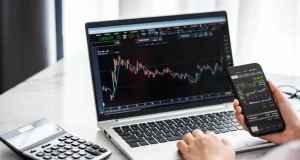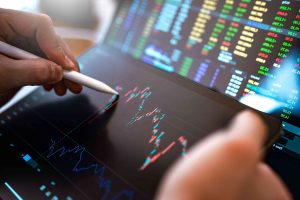
Unless you are staying under a stone, you’d understand we can trade securities like stocks, mutual funds, ETFs, bonds, options, currencies, and futures practically entirely online now on https://www.playmarketstore.com/olymptrade. It’s simple, and productive. But this is a high-level standpoint. In this column, we’ll dash in on trading online to get you a precise image about how this functions, its advantages and how you can trade online. Once you know about the benefits and basics of online trading, you may accomplish it simply through the brokerage’s online proprietary platform for trading.
Fundamental Points
Since the epoch of trading online, traders need to call and convey ‘buying’ and ‘selling’ orders to the brokerage corporations for trading for them.
Now, because of the genesis of the digital era online, the vast preponderance of traders got shifted to trading platforms online. The most significant advantage of trading online is it offers you greater restraint over your undertakings.

Online Trading
Earlier when trading was not online, traders needed to call and provide orders to the enterprises to trade. It was an extremely tedious cycle, and understandably inflicted many difficulties. Alarmingly, there are some investors who nevertheless practice trading offline even in today’s times.
Nevertheless, with the inception of the internet era, the huge bulk of traders moved to trading platforms online. You can set orders for buying and selling, spot market limits, lay a stop-loss, review the order status, read information about firms, glimpse the catalog of securities presently carried in the dashboard, and you can also have an entry to all the prior investment affidavits. Trading online has also curtailed costs for investors and traders both.
How does trading work online?
If you purchase or sell stocks through trading online, your order is implemented within seconds. However, within seconds many undertakings take place that you are unfamiliar, such as:
- When the order gets enrolled
- Your order gets positioned in the database
- Also it scans for sellers and if both seller and buyer matches, a verification message is delivered to both of them
- The price and the order are tallied to all regulatory bodies
- The regulatory bodies examine all the actions and they are illustrated to the investors
- The trading documents are cataloged in case controllers want to survey your past marketings
- A contract gets sent to the broker who traded the shares and also to the broker, the one who purchased them
- After this, the broker has 3 days for exchanging the currency and shares. It is called a settlement
- After the operation, the currency and the shares get transferred officially in the bank account




